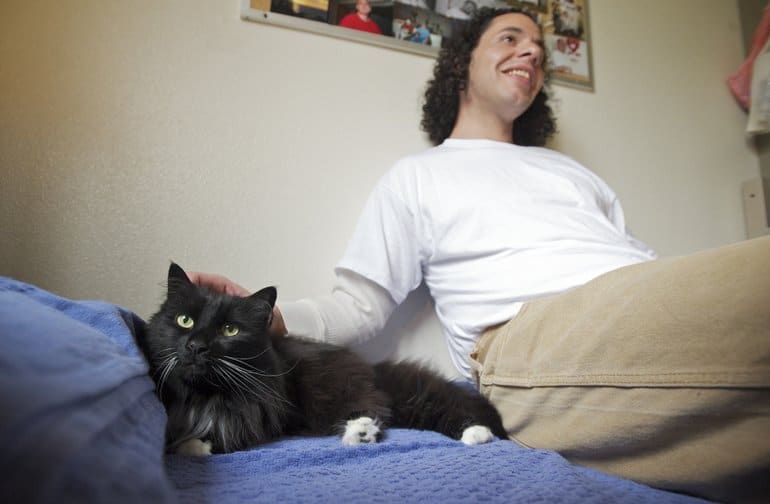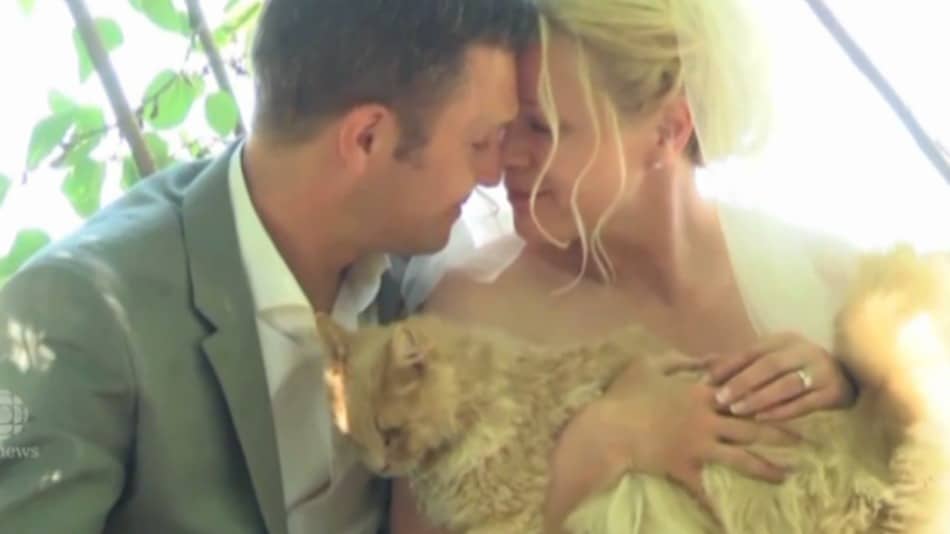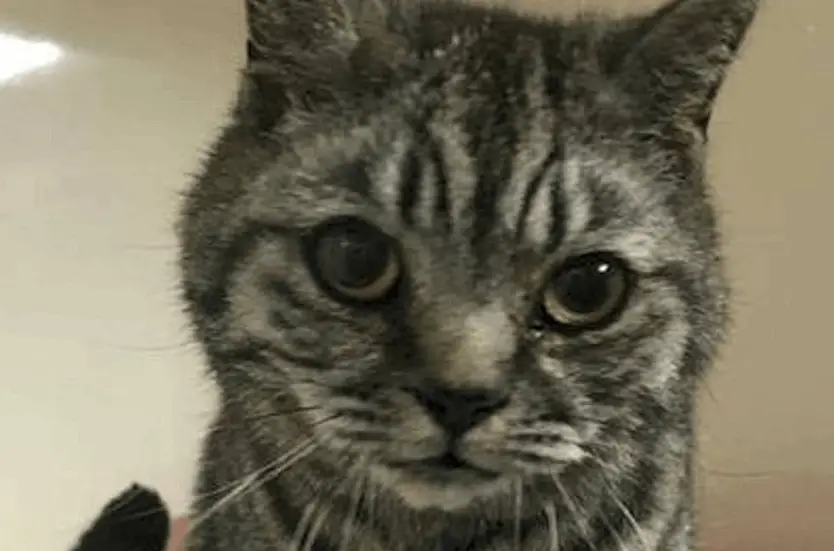It is possible for pets and plants to live together harmoniously, but often not without taking some measures to prevent disaster.
With some plants, the focus is on preventing them from being unnecessarily destroyed. For others, the concern lies in the potential toxicity of the plant and how it may affect your pet if ingested.
It can be so frustrating and disheartening to have your beautiful houseplants ruined by your pets, but thankfully there are many things you can do to prevent it from happening.
Here are some tips to keep your cats and dogs out of your houseplants:
Keep your pet entertained so they won’t care about your plants
One of the primary reasons that houseplants get destroyed by pets is boredom. When pets feel under-stimulated and bored, they can become destructive in a desperate bid for some entertainment and attention.
The first step in preventing your pet from destroying your houseplants is to ensure that they remain engaged, entertained, and feeling connected to you. Make sure that they have access to a range of fun and interactive toys that they can play with, and that you engage in regular playtime with them, too.
Keep toxic plants out of reach of your pets
While there are many things that you can do to prevent your pet from getting to your houseplants, it’s simply not worth the risk when it comes to plants that may be dangerous to their health. For this reason, keep any plants that are toxic to cats out of their reach at all times. Also, always ensure that you carefully research the safety of any plants that you have in your home.
Use strong odors as repellants
Using strong odors around your houseplants can act as an effective deterrent for your pet. For example, coffee grounds or citrus peels like lemon, lime, or grapefruit can emit strong smells that prevent pets from going anywhere near the plant. This method isn’t always effective, and you may have to experiment with different odors, but it is an easy fix if effective, so worth the effort to try.
Repellent sprays keep pets out of houseplants
If you’d prefer to use a repellent spray, then there are several options that are typically very effective. Spraying repellents like citronella on your houseplants can deter your pet from going near them.
You can purchase these spray products from nurseries and pet stores. Spray products designed specifically to repel pets from plants, such as ‘bitter apple,’ are readily available and can be highly effective.
Train pets to avoid your houseplants using positive reinforcement
One of the most effective ways to keep your pet away from your houseplants is to teach them through positive reinforcement.
For example, supervise your pet when they are in close proximity to the plant, give them a firm ‘no’ when they approach the plant, and then positively reinforce them moving away from it by rewarding them with a treat and some affection. It is never necessary or acceptable to use aggression or abusive actions to train a pet.
Teaching your pet to stay away is key; cats especially love to dig and unearth plants, while dogs are more likely to do their business in plants — and dog urine can kill plants. It’s the culprit behind brown/yellow spots and some dying plants.
Doing this repeatedly and consistently can condition them to avoid the plants altogether, especially when combined with a deterrent, such as a repellent spray.
Blood meal is an effective deterrent
This might not be the most pleasant suggestion, but using blood meal can be quite effective in preventing your pet from digging into your houseplants.
Adding blood meal to soil is used as a deterrent for animals such as squirrels and moles, and can be effective with dogs and cats, too.
Cats have very sensitive noses and the smell emitted from adding blood meal to your houseplant soil can be enough to keep them away.
Blood meal is also a great fertilizer that your plants will love. Still, it does introduce a very concentrated amount of nitrogen which can prevent plants from flowering or even kill them, so be careful to add a modest amount and follow the instructions to avoid damaging your plants.
Cover the soil
Some pets are particularly attracted to houseplants because they like to dig around in the soil. If this is the case with your pet, consider covering the soil in your plant pots with materials that are unattractive to your pet, such as rocks, prickly pine cones, or even aluminum foil. You can also go one step further and spray the soil covering with a taste deterrent.
Move your plants to a pet-free room
If nothing else is working or is practical as a solution, it may be best to move your houseplants to a room that is off-limits to your pet.
Between keeping your plants in a pet-free room and making sure that all others are positioned out of reach of your pet, then that is all the preventative action you will need to take.
Final thoughts
Houseplants and pets can coexist successfully, but it may take some work to make it possible. Ultimately, the most important thing is the safety of your pet, so ensure that any plants within their reach are not toxic or dangerous to their health.
Other than that, these other options can make a huge difference depending on your pet; it may just take a little trial and error.
If you found this article helpful, Pin it!

The Catington Post is reader-supported. That means, if you make a purchase through links on our site, we may earn an affiliate commission. All images and names which are not the property of The Catington Post are the property of their respective owners.




